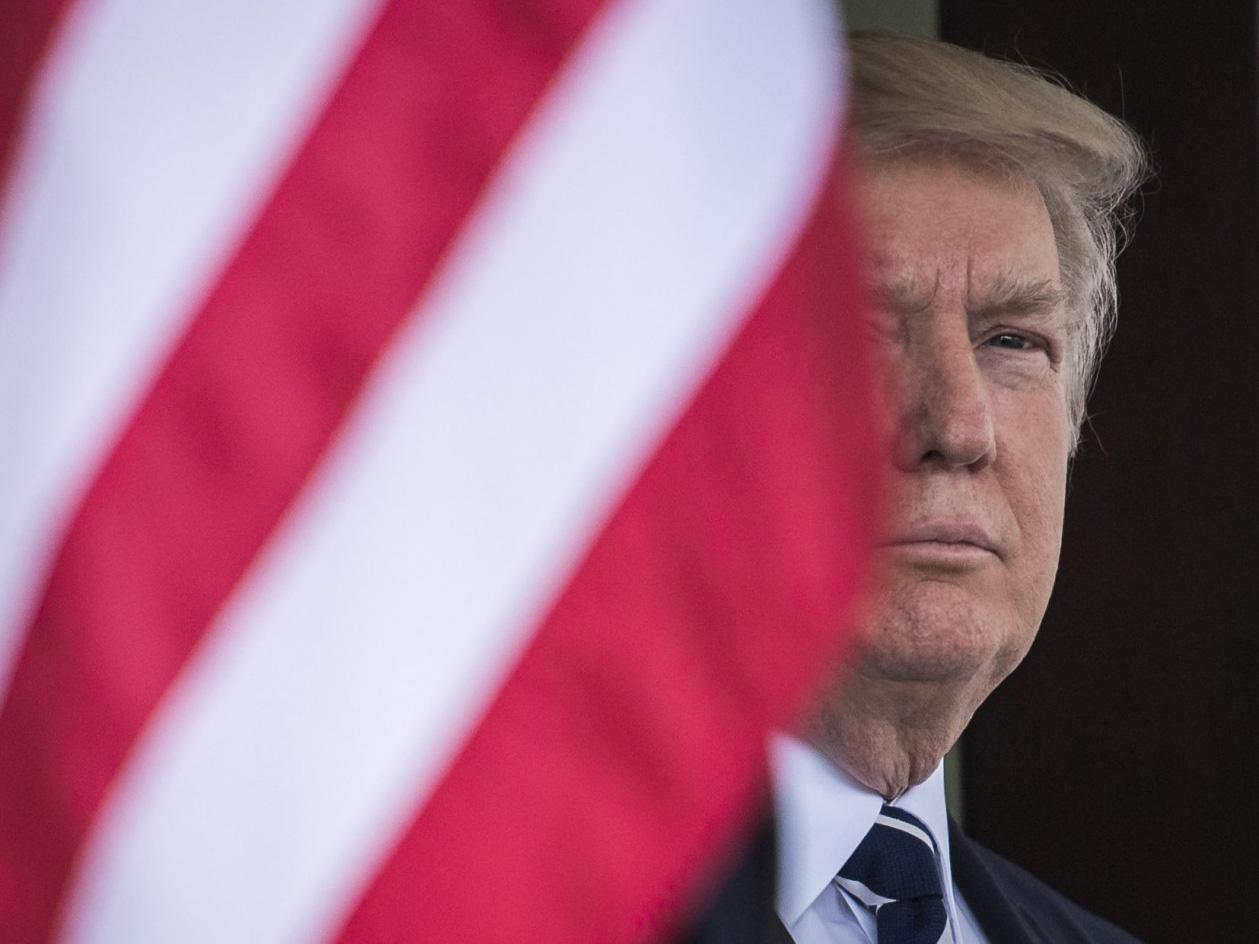How can it be that Donald Trump is talking more sense than every other politician about banks?
It would be nice to think Trump, who himself once ran a casino that went bankrupt, is applying a hard-learned lesson from his own business experience


In October 2007 Sir Fred Goodwin finally got what he wanted. The chief executive of the Royal Bank of Scotland had beaten Barclays in a bidding war and acquired the Dutch banking conglomerate ABN Amro. At $71bn (then £35bn) it was the most expensive financial services merger deal ever. The Financial Times described it as a “triumph” for Goodwin.
Some parts of ABN were carved up and went to RBS’s bid partners in Spain and Belgium. For RBS, Goodwin had essentially secured ABN’s investment banking operations.
Not everyone was convinced it was such a great deal. Goodwin was reportedly warned by another banker about ABN’s exposure to US “subprime” mortgages, which were already causing ominous levels of stress in global financial markets. “Stop being such a bean counter,” was Goodwin’s response.
But the beans needed counting. Just over one year later RBS was on the verge of collapse (in considerable part due to the implosion of ABN) and had to be rescued by the former Labour government with some £45bn of taxpayers’ money to avoid catastrophic collateral damage on the rest of the economy.
And the bleeding at what had been, on some measures, the world’s largest bank has still not stopped. Over the past decade RBS has racked up almost £60bn of losses. The taxpayer’s stake in the bank is today worth less than half of what the British state paid for it and the Chancellor, Philip Hammond, is now preparing us for the fact that we will probably never get our money back.
Goodwin was stripped of his knighthood in 2012 and is set to give evidence in a civil case next month brought by small investors who believed they were lied to by RBS’s management in 2008. It will be Goodwin’s first public testimony since 2009. Expect his ABN “triumph” to figure.
Except for the fact that both are loosely termed “banking”, retail banking has little in common with investment banking. Looking after customers’ deposits and lending people money to buy homes is profoundly different from trading complex financial assets, underwriting company flotations and advising on mergers.
As has been widely noted, retail banking is akin to a dull household utility, like the supply of residential water or electricity. Investment banking is more like running a small and dodgy casino, which is always one customer winning streak away from going bust.

There are several reasons why the utility and the casino do not belong under the same roof. For one thing, the investment banking arms can effectively use the cheap deposits of ordinary customers to fund their risky investment banking activities (rather like an irresponsible parent using child benefit payments to purchase lottery scratch cards).
For another, putting the two activities together tends makes these banks too big and interconnected to be allowed to safely fail, meaning that they enjoy an effective government bailout guarantee; an unwarranted state subsidy that pushes down the rates at which the larger group can borrow.
But the simplest argument is that no chief executive can competently manage a utility and a casino. And no one proves that better than Fred Goodwin. In 2007 he had used shareholders’ money to acquire a business he plainly hadn’t scrutinised and simply didn’t understand. The result has been economic trauma not just for RBS shareholders but for every man, woman and child in Britain.
And RBS is merely the winning candidate in an ugly contest. A host of scandals at other universal banks over the past decade, from interest rate rigging to money laundering, has shown beyond any reasonable doubt that these conglomerates are too sprawling and complex to manage.
The Coalition government in 2010 was urged to split up the UK’s banking empires (RBS, Barclays and HSBC). But the former Chancellor, George Osborne, despite mooting a forcible split in opposition, failed to do it. What he delivered instead was a “ringfence” of retail banking within the larger group. This has successfully delivered more complexity and paperwork, but none of the benefits of a clean separation. The utility remains fused to the casino.
In fairness to Osborne, he at least considered the issue. In America, Barack Obama and the Democratic leadership never gave a serious thought to splitting up giant US banks. And governments in Europe, for all their passionate denunciations of reckless “Anglo-Saxon” finance, remain unthinkingly wedded to their own equally dangerous and generally incompetent national banking supermarkets.
Yet Donald Trump now says he may jump over the fence of financial reform at which Osborne, Obama and the post-crisis generation of European leaders balked. The US President has said he is looking at breaking up America’s universal banks, which would include Citigroup, JP Morgan and Bank of America.
It would be nice to think Trump, who himself once ran a casino that went bankrupt, is applying a hard-learned lesson from his own business experience. Sadly, it’s just as likely that he is simply dredging up some of the rhetoric from his election campaign to distract from his other humiliating failures in office thus far; and that, like so much else, structural banking reform is never going to see the light of day.
Nevertheless, this is one Trump promise that we should all be praying he actually does deliver on. And if real financial reform from this clown-president does materialise, it would put all those supposedly serious politicians who failed to do the sensible thing and split up the universal banks to even greater shame.
Join our commenting forum
Join thought-provoking conversations, follow other Independent readers and see their replies
Comments
Bookmark popover
Removed from bookmarks